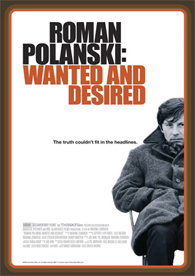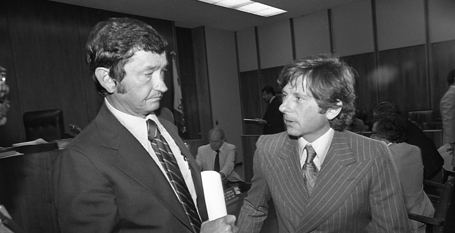
Statutory rape is for the most part an open-and-shut case, where guilt is never in doubt and sentencing is mandatory. At least, that’s how it plays in Singapore. But say this is the United States of America, and say you are a celebrity. Everything would be different because celebrities seem to be subjected to a different legal system. In 1977, Roman Polanski was charged for statutory rape of Samantha Geimer, was sentenced to undergo psychiatric evaluation under a seemingly generous plea bargain, but fled to France and became a fugitive for the rest of his life.
This should be an open-and-shut case, a sordid tale hardly worthy of a documentary. But Marina Zenovich has a story to tell, one that will paint the genius director as a man being sinned against more than having sinned, one that will show the director was a bigger victim than the 13-year-old girl he drugged and had sex with.
The documentary splices talking head interviews, notably of Samantha Geimer, the former state prosecutor, and the defence attorney, with footage from the news reports of the legal case, clips from the director’s films (Rosemary’s Baby, Chinatown, Repulsion, Pirates), as well as media interviews with the director after his escape to France.
Zenovich attempts to paint the picture of a tormented genius, an emotionally shattered director who becomes a victim of injustice and by figures of authority and trust – just like the many protagonists of his films. She’s clearly rooting for a certain side in this tale and painting the judge as the villain of the piece, but the documentary feels disinterested and dispassionate, with Zenovich’s directorial voice and commentary appearing only as intertitles between scenes.
There are two ways of making a documentary. One is to present a balanced case with point and counterpoint, to arrive at some sort of an objective truth. The other is to present the case for one side so clearly that one would be forced to agree with it – if one didn’t sense any audience manipulation or economy with the truth. Roman Polanski: Wanted and Desired stands out in how it fights for its version of the truth while appearing and feeling very much restrained and impartial.












 Printable Version
Printable Version









